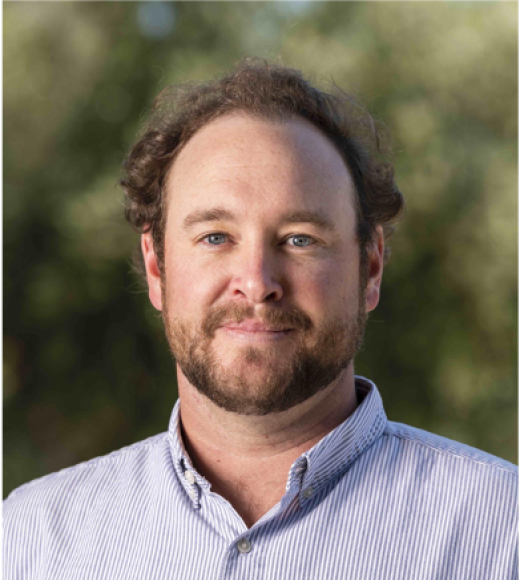
Position Title
University of California, Santa Barbara
Prof. Philip Christopher
Abstract
Dynamic control of elementary step energetics via pulsed illumination enhances photocatalysis on metal nanoparticles
Photon illumination of metal nanoparticle catalysts can promote reaction rate and selectivity through transient charge transfer to adsorbed species. Here we demonstrate that illumination of 2 nm diameter Pt nanoparticle catalysts with pulsed visible light enhances time-averaged rates of H2 production via methanol decomposition compared with static illumination. Based on CO temperature-programmed desorption, in-situ FTIR, and kinetic measurements, we propose that pulsed illumination promotes reaction rates compared to static illumination by oscillating the binding energy of surface intermediates at frequencies that are resonant with reaction kinetics. We also show that the impact of light is chemically specific, influencing some elementary step energetics more than others. Our results suggest that using light pulses to dynamically control the energetics of elementary steps on catalytic surfaces may enable higher activity or selectivity than is possible with static illumination or dictated by linear free energy scaling relations.
Biography
Phillip Christopher received his B.S. from the University of California, Santa Barbara in 2006 and his M.S and Ph.D. from the University of Michigan in 2011, all in Chemical Engineering. From 2011-2017 he was an Assistant Professor at the University of California, Riverside. In 2017 he moved to the University of California, Santa Barbara where he is a Professor in the Chemical Engineering Department and the Mellichamp Chair in Sustainable Manufacturing. His research interests are in sustainable chemical conversion, heterogeneous catalysis by supported metals, atomically dispersed metal catalysts, in-situ characterization of the dynamic behavior of catalysts, and photocatalysis by metal nanostructures. He has been given various awards including the Presidential Early Career Award for Scientists and Engineers (PECASE), ACS CATL Division Early Career in Catalysis Award, and AIChE CRE Division Young Investigator Award. He also currently serves as a Senior Editor for ACS Energy Letters.